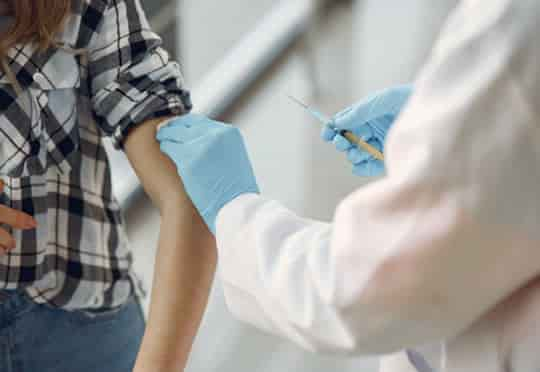The first COVID-19 vaccine is safe for phase 2 human test and could be ready in six months.
The first vaccine against SARS-CoV-2 has completed the phase 1 clinical trial showing promising results and is moving on to phase 2.
The new COVID-19 vaccine was injected in 108 healthy adults and was found to be well-tolerated, safe, and produced a good immune response against the virus.
A phase 2 trial has been started to see if the results can be replicated in a larger population with no harmful effect after vaccination for 6 months.
Professor Wei Chen, study senior author, said:
“These results represent an important milestone.
The trial demonstrates that a single dose of the new adenovirus type 5 vectored COVID-19 (Ad5-nCoV) vaccine produces virus-specific antibodies and T cells in 14 days, making it a potential candidate for further investigation.
However, these results should be interpreted cautiously.
The challenges in the development of a COVD-19 vaccine are unprecedented, and the ability to trigger these immune responses does not necessarily indicate that the vaccine will protect humans from COVID-19.
This result shows a promising vision for the development of COVID-19 vaccines, but we are still a long way from this vaccine being available to all.”
Right now everybody thinks that vaccination is the best solution against the COVID-19 pandemic.
This has countries competing to be first in discovering the vaccine.
As a result, over 100 candidate COVID-19 vaccines are in development.
The Ad5-nCoV vaccine is one of the candidates and also the first one that has been tested in a human trial.
The vaccine contains a weak common cold virus known as adenovirus which causes a respiratory infection.
It provides the genetic material of the SARS-CoV-2 spike protein causing the immune system to produce antibodies that can identify spike proteins and so defeat the COVID-19 virus.
The Ad5-nCoV vaccine was administered to healthy adults in various doses with no SARS-CoV-2 infection.
All doses were tolerated and side-effects included fever, headache, muscle pain, fatigue, and mild pain caused by the injection which lasted for less than 2 days.
Twenty-eight days after vaccination, antibodies binding to the antigen increased by a four times in most subjects.
They either had SARS-CoV-2-neutralizing antibodies or a positive T cell response against the virus.
Professor Feng-Cai Zhu, the study’s first author, said:
“Our study found that pre-existing Ad5 immunity could slow down the rapid immune responses to SARS-CoV-2 and also lower the peaking level of the responses.
Moreover, high pre-existing Ad5 immunity may also have a negative impact on the persistence of the vaccine-elicited immune responses.”
The phase 2 trial of the Ad5-nCoV vaccine has already started to find out if the results can be reproduced in a larger population and among people over 60.
They also want to see if there are any serious side-effects six months after vaccination.
The study was published in The Lancet (Zhu et al., 2020).

